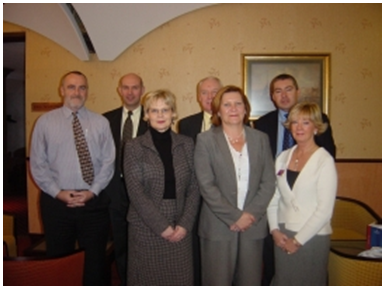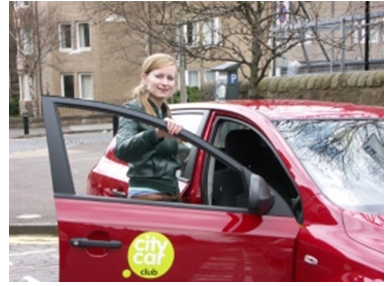외국
Widening Participation
in Health & Social Care Group
Contributed by:Healthy Futures
Organisation:Sustainable Development Commission:namespace prefix = "o" />

Widening Participation in Health & Social Care Group | Durham, North East |
Publication of any case study does not imply an endorsement of its merit by the Sustainable Development Commission.
The Widening Participation in Health and Social Care Group is working with the NHS, local authorities and education authorities to improve recruitment and retention of local staff in the North East region, focussing on lifelong learning and on areas of deprivation or high levels of unemployment.
Overview
The Widening Participation in Health and Social Care Employment group has been set up to maximise the recruitment and retention of people in the North East. The group has wide membership including: North East Assembly, TOPPS North East, County Durham & Tees Valley Strategic Health Authority, Northumberland and Tyne & Wear Strategic Health Authority, Job Centre Plus, NHSU, Durham Social Care Alliance, Durham County Council, Middlesborough PCT, NEREO, ONE, South Tees Hospitals NHS Trust, North East Public Health Observatory, Sunderland Teaching PCT and region’s four Learning & Skills Councils. It has been running for nearly three years with members volunteering their time and with minimal funding. It co-ordinates a number of innovative projects and facilitates the links between NHS and social care organisations, training networks, funding sources, job centres, local schools and the local Learning and Skills Council. It also helps its members learn from one another and replicate successful projects across the region.
‘The public sector are huge employers in the North East and if we can harness this employer potential to engage with some of the harder to reach communities, we can make a real progress in supporting some of our poorer communities,’ says Elaine Rogers of the partnership. The partnership works hard to unravel some of the complexity of funding streams available for education and training and then successfully joins up this supply with the demand for training in partner organisations, and it promotes the use of national schemes to reduce unemployment and support young people, such as Modern Apprenticeships.
Examples of partnership projects:
► The STEPS programme was set up to work with schools to promote careers in the NHS and social care to young people from diverse backgrounds. It is about awareness raising and skills development and is led by the Tyne and Wear Strategic Health Authority. The project provides:
�� work experience within the NHS for young people known as NHS Students,
�� facilitation for a range of learning activities related to the NHS, and
�� an NHS Mentor for each NHS student. It has grown to now operate in 14 secondary schools within Northumberland and Tyne & Wear. It works in partnership with eight local NHS organisations and one Social Care organisation. It will be rolled out to County Durham in 2004, following its initial success.
► South Tees Hospital Trust and Job Centre Plus have been in partnership for over 15 years. The Job Centreputs unemployed people in touch with jobs which the Trust has set aside for people from the most deprived areas locally. They identify ways of providing employment opportunities to traditionally hard to access communities or areas.
Strategic Learning
�� Strong partnerships and a shared vision between the NHS and education authorities are vital to the success of the project.
��Those devising a project must consult and listen to the views of the target audience to make sure the project provides the support and information they need.
�� Communities perceived as “unemployable” can provide a valuable workforce resource if provided with basic training and support.
“With so many confusing funding streams and Government initiatives out there for education and training, a partnership like this can help cut down on duplication within the NHS and encourage Trusts to be responsible employers, contributing to the local economy and well-being.” Tony Batty, North East Regional Public Health Team
More examples of partnership projects:
► Health Learning Works is a scheme which puts unemployed people who want to work but have never considered the NHS in touch with NHS employers who have identified jobs for them. The NHS has large numbers of vacancies and are keen to make use of people who may otherwise not apply due to lack, or perceived lack, of skills or confidence This scheme is targeting under-represented groups or areas of high unemployment in particular.
► A Social Care training programme in place in South Tees aims to prepare people from the Bangladeshi community, or young people in or leaving care, for Social Care jobs. The scheme has been running for over 6 years and so far over 120 people have been successful.
► Support Services Pilot run by County Durham NHS Estates is a skills escalator scheme in Co Durhamaimed at increasing the skill levels of employees in catering, cleaning and portering roles within the NHS to enable them to progress into new roles. This scheme helps employees realise their potential and creates job opportunities at entry level to maintain a flow of new jobs in the NHS.
Key features
health
regeneration
Key data
Local Authority:
County Durham & Tees Strategic Health Authority
Northumberland & Tyne & Wear Strategic Health Authority
Widening Participation in Health & Social Care Group Healthy Futures case study
Edinburgh City Car Club

Car club members access cars with a smart card
Contributed by:Chas BallOrganisation:City Car Club
Edinburgh City Car Club | Edinburgh, Scotland |
Publication of any case study does not imply an endorsement of its merit by the Sustainable Development Commission.
Edinburgh City Car Club is operated by City Car Club Ltd (formerly Smart Moves) in partnership with the City of Edinburgh Council. It currently has over 80 cars and about 2500 members (January 2008). It offers pay as you use cars for members located mainly on street all over central Edinburgh.
Overview
Launched in March 1999 Edinburgh City Car Club (called "car sharing" in every other country) is the largest car club in Britain, outside London. It is operated by City Car Club in partnership with the City of Edinburgh Council. It currently has over 80 cars, all less than 3 years old, with lower that average carbon emissions and good fuel economy. It has nearly 2500 members (January 09) with currently over 100 new members joining each month.
Members have local access to a car when they need one and only pay for the time it is in use and the miles driven. Cars are parked in reserved on-street parking spaces, close to homes or workplaces and can be booked on-line or by telephone, months ahead or at a few minutes notice. All vehicles are serviced and maintained by the car club, which means members don’t have the expense or hassle of dealing with servicing, repairs, MOTs, road tax and cleaning. Membership also includes comprehensive insurance. Personal or business membership is available and all new members receive a credit equivalent to 5 hours free motoring. There is an initial joining fee payable when membership commences and an annual fee payable each year. Discounts are offered to business and personal members. Rental rates are as low as £3.96 per/hour (standard car). All rentals include 50 miles of free petrol each day.
City Car Club provides a hassle free alternative to traditional car ownership in the form of pay- as-you-go car rental. It suits people with a variety of transport needs, from those living a 5-10 minute walk from a City Car Club bay to those only needing a car on odd days. Business members find car club membership a cost effective alternative to the expense of running a pool car. By only paying for the time they use the cars, members usually save money and the transparent costs contribute to a reduction in the number of cars on the road. City Car Club cite research showing that each car in a car club typically replaces 8 - 10 privately owned vehicles. Fewer cars mean less congestion and also quieter, cleaner, safer streets. Through progressive improvements in the use of technology – starting with internet booking – and increased reliability, has lead to a steady growth in satisfied members.
Over 400 staff from City of Edinburgh Council have joined the Council's corporate scheme, which gives them access to the fleet of over 80 cars, which they can use when conducting council business. The Council block book 9 of these cars for the exclusive use of their staff during the working day. They are conveniently located outside the Council's main offices in the city centre and these cars are then available to other members evenings, weekends and holidays. As Cllr. Andrew Burns commented, “it makes economic sense, it costs less than leasing pool cars and the car club looks after the maintenance of vehicles.”
Car club members usually fall into the following categories:
• People who do not currently own a car, but would like to have access to a car for occasional use
• People who only use a car two or three times per week for social or business trips
• Two car families, who could substitute their second car for a car club car
• People who currently run a car and clock up a low annual mileage
• Businesses looking to save money on the costs and adminstration of pool cars
Car clubs need…
• Dedicated on street parking bays
• Pump priming support (e.g. for marketing and parking bays) in early phase. If the operation is in a smaller or marginal locations support may be required for a longer period
• Effective partnerships with transport operators and local councils
• Establishing a critical mass of members in each area there is a car location
• Efficient technology, back office systems and operational support (24 hours help line and local vehicle support staff)
City Car Club first started operating in 2000 in Bristol. It also runs car clubs in London, Brighton & Hove, Bath and Birmingham and is planning a scheme in Glasgow.
Local authorities, hospitals, large and small businesses are using City Car Club cars as pool cars. City Car Club offers a consultancy service on planning and development issues to local authorities and developers and can provide technical support to independent car clubs operators.
Key features
land use
local government
transport
Key data
Project Team: City Car Club Ltd (originally called Smart Moves)
Cost: £105,00 grant aid over 5 years (2001- 2006)
Local Authority: City of Edinburgh Council
Client: CEC
Edinburgh City Car Club
게시물수정
게시물 수정을 위해 비밀번호를 입력해주세요.
댓글삭제게시물삭제
게시물 삭제를 위해 비밀번호를 입력해주세요.






